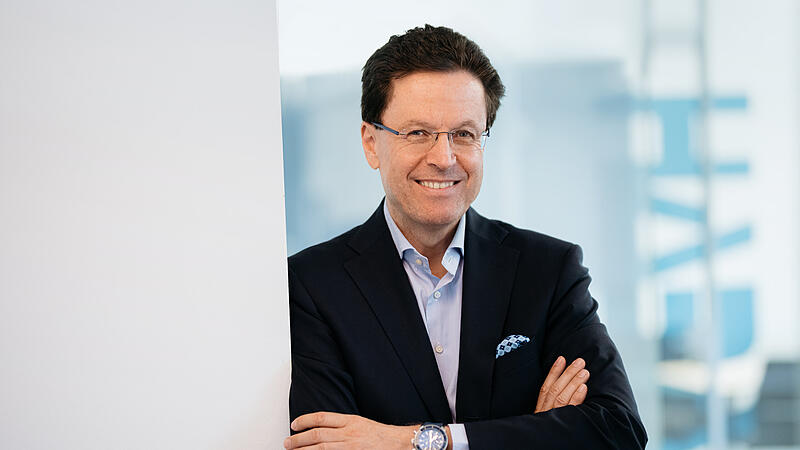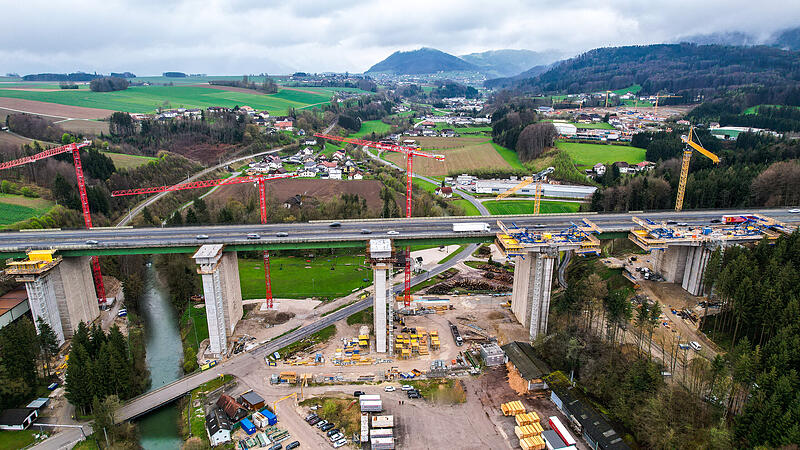Image: (Habau)


He always sees the glass half full, says Hubert Wetschnig, CEO of Habau based in Perg. The head of Upper Austria’s second largest construction company was elected representative of the construction industry in the industry division of the Upper Austrian Chamber of Commerce in April.
The construction industry is almost unaffected by concerns about a lack of orders from construction companies that are geared towards residential construction and especially single-family house construction. The construction industry is far too broad, said Wetschnig at the industry talk of the Industry division and the OÖNachrichten. There is a lot to do, especially in civil engineering. The construction industry in Upper Austria consists of 24 companies with 6,400 employees and a production value of 2.6 billion euros – is active from railway construction to precast concrete construction.

The lack of orders in residential construction means that larger commercial construction companies would increasingly bid on building construction projects that are actually handled by construction companies, adds August Weichselbaumer, who is responsible for domestic construction business on the board of the largest Upper Austrian construction group, Swietelsky. For example, Bavarian precast concrete builders are increasingly active on the domestic market as far away as Vienna. They missed the projects in the greater Munich area, where there are hardly any building construction tenders, as Weichselbaumer says.
It remains to be seen whether these newcomers will succeed in winning individual tenders. Conversely, domestic construction groups are also quite active in Germany. There should be some civil engineering projects there because the German infrastructure is considered to be severely neglected.

Saving on construction projects
In general, Wetschnig sees the challenge of optimizing residential construction projects in such a way that they can also be implemented cost-effectively. However, according to Wetschnig, the customers also have to play their part instead of changing their plans at the last moment. “Planning ahead makes building cheaper.”
The construction companies would see an easing of the raw material prices. The steel price for reinforcements, which had doubled in the previous year, is back to normal. Due to the falling demand, Wetschnig expects that there will be a price war between producers for primary materials in the second half of the year. “This is inevitable.”
Wetschnig sees the public sector as having a duty. Especially in building construction, increased renovations could secure jobs in construction. “If you start an offensive now, it would take effect in nine months due to the preparatory work.”
In Austria, the construction industry turned over a volume of 27.5 billion euros last year, 8.4 billion of which in civil engineering, around 15 billion in building construction, and the rest in special construction.
Wetschnig admits that the construction industry comes from a very good demand situation. Habau currently has one “weak annual order backlog” in the books and went into 2023 with roughly the same number of employees as in the previous year.
Climate sinner construction
However, the industry faces the challenge that climate-neutral construction does not make construction cheaper. The majority of the 38 to 40 percent of global CO2 pollution that is attributed to real estate is caused by the operation of the building – above all by heating.
According to Wetschnig, the proportion of climate pollution that can be directly influenced is a maximum of eight percent. “We can improve the processes. Digitization means that we are becoming more precise in quantity planning, faster in construction and less prone to errors”says the manager.
more from economy




